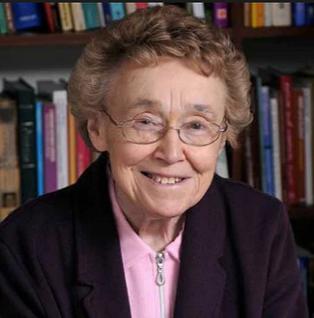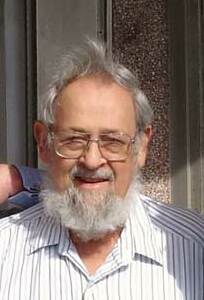 | |
| Author | Denis Leary |
|---|---|
| Language | English |
| Media type | Print, Audiobook |
Why We Suck: A Feel Good Guide to Staying Fat, Loud, Lazy and Stupid is a 2008 book written by actor and comedian Denis Leary.
 | |
| Author | Denis Leary |
|---|---|
| Language | English |
| Media type | Print, Audiobook |
Why We Suck: A Feel Good Guide to Staying Fat, Loud, Lazy and Stupid is a 2008 book written by actor and comedian Denis Leary.
Leary is credited on the book cover as "Dr. Denis Leary", a reference to a joke from his 1993 stand-up special, No Cure for Cancer . During the show he mentions he wants to write a self-help book entitled "Shut the Fuck Up, by Dr. Denis Leary", with the "advice" being telling the people seeking help the one thing no one has ever told them to do ("shut the fuck up"), which he believes would help people more than actual advice.
Leary also uses the "Doctor" title because of an honorary doctorate bestowed upon him by his alma mater Emerson College. [1] "Sure it's just a celebrity type of thing-they only gave it to me because I'm famous." Leary jokes. "But it's legal and it means I get to say I'm a doctor – just like Dr. Phil!" [2] In the book, he refers to Dr. Phil as "Dr. Full". [3]
The book reached #7 on the New York Times Best Sellers list in December, 2008. [4]
In the book, Leary wrote:
There is a huge boom in autism right now because inattentive mothers and competitive dads want an explanation for why their dumb-ass kids can't compete academically, so they throw money into the happy laps of shrinks... to get back diagnoses that help explain away the deficiencies of their junior morons. I don't [care] what these crackerjack whack jobs tell you – your kid is not autistic. He's just stupid. Or lazy. Or both.
Leary later stated that the quote was taken out of context and that in that paragraph he had been talking about what he calls the trend of "unwarranted" over-diagnosis of autism, which he attributed to American parents seeking an excuse for behavioral problems and under-performance. Later, he apologized to parents with autistic children whom he had offended. [5] [6]

Denis Colin Leary is an American stand-up comedian and actor. Born in Massachusetts, Leary first came to prominence as a stand-up comedian, especially through appearances on MTV and through the stand-up specials No Cure for Cancer (1993) and Lock 'n Load (1997). Leary began taking roles in film and television starting in the 1990s, including substantial roles in the films Judgment Night (1993), Gunmen (1994), Operation Dumbo Drop (1995) and Wag the Dog (1997).

Mary Temple Grandin is an American academic and animal behaviorist. She is a prominent proponent of the humane treatment of livestock for slaughter and the author of more than 60 scientific papers on animal behavior. Grandin is a consultant to the livestock industry, where she offers advice on animal behavior, and is also an autism spokesperson.

Lorna Gladys Wing was an English psychiatrist. She was a pioneer in the field of childhood developmental disorders, who advanced understanding of autism worldwide, introduced the term Asperger syndrome in 1976 and was involved in founding the National Autistic Society (NAS) in the UK.
Bruno Bettelheim was an Austrian-born psychologist, scholar, public intellectual and writer who spent most of his academic and clinical career in the United States. An early writer on autism, Bettelheim's work focused on the education of emotionally disturbed children, as well as Freudian psychology more generally. In the U.S., he later gained a position as professor at the University of Chicago and director of the Sonia Shankman Orthogenic School for Disturbed Children, and after 1973 taught at Stanford University.

The autism rights movement, also known as the autistic acceptance movement, is a social movement allied with disability rights that emphasizes a neurodiversity paradigm, viewing autism as a disability with variations in the human brain rather than as a disease to be cured. The movement advocates for several goals, including greater acceptance of autistic traits and behaviors; reforms of services – i.e. services that focus on improving quality of life and well-being instead of suppression and masking of autistic traits that are adaptive or not harmful or imitations of social behaviors of allistic (non-autistic) peers ; the creation of social networks and events that allow autistic people to socialize on their own terms; and the recognition of the autistic community as a minority group.
Ole Ivar Løvaas was a Norwegian-American clinical psychologist and professor at the University of California, Los Angeles. He is most well known for his research on what is now called applied behavior analysis (ABA) to teach autistic children through prompts, modeling, and positive reinforcement. The therapy is also noted for its use of aversives (punishment) to reduce undesired behavior.

Bernard Rimland was an American research psychologist, writer, lecturer, and influential person in the field of developmental disorders. Rimland's first book, Infantile Autism, sparked by the birth of a son who had autism, was instrumental in changing attitudes toward the disorder. Rimland founded and directed two advocacy groups: the Autism Society of America (ASA) and the Autism Research Institute. He promoted several since disproven theories about the causes and treatment of autism, including vaccine denial, facilitated communication, chelation therapy, and false claims of a link between secretin and autism. He also supported the ethically controversial practice of using aversives on autistic children.
The refrigerator mother theory, also known as Bettelheim's theory of autism, is a largely abandoned psychological fringe theory that the cause of autism is a lack of parental, and in particular, maternal emotional warmth. Evidence against the refrigerator mother theory began in the late 1970s, with twin studies suggesting a genetic etiology, as well as various environmental factors. Modern research generally agrees that there is a largely epigenetic etiology of autism spectrum disorders.
Self-advocacy is the act of speaking up for oneself and one's interests. It is used as a name for civil rights movements and mutual aid networks for people with intellectual and developmental disabilities. The term arose in the broader civil rights movements of the 1960s and 1970s, and is part of the disability rights movement. Today there are self-advocacy organizations across the world.

Societal and cultural aspects of autism or sociology of autism come into play with recognition of autism, approaches to its support services and therapies, and how autism affects the definition of personhood. The autistic community is divided primarily into two camps; the autism rights movement and the pathology paradigm. The pathology paradigm advocates for supporting research into therapies, treatments, and/or a cure to help minimize or remove autistic traits, seeing treatment as vital to help individuals with autism, while the neurodiversity movement believes autism should be seen as a different way of being and advocates against a cure and interventions that focus on normalization, seeing it as trying to exterminate autistic people and their individuality. Both are controversial in autism communities and advocacy which has led to significant infighting between these two camps. While the dominant paradigm is the pathology paradigm and is followed largely by autism research and scientific communities, the neurodiversity movement is highly popular among most autistic people, within autism advocacy, autism rights organizations, and related neurodiversity approaches have been rapidly growing and applied in the autism research field in the last few years.
Illana Katz is an American author, lecturer, and founder of Real Life Storybooks, a publisher of special needs storybooks for children. Motivated by the late 1980s news that her son Seth had autism, Katz began to educate herself about autism, including researching into the life of theoretical physicist Albert Einstein. After writing Joey and Sam: A Heartwarming Storybook About Autism, a Family, and a Brother's Love in 1993, circumstances led Katz to write Sarah, a 1994 book about child molestation. By 1995 Katz and her collaborator, UCLA professor Edward Ritvo, had gathered enough material to write their 1995 book, In a World of His Own: A Storybook About Albert Einstein, in which they concluded that Einstein did have autism. Katz continues to work in the special needs profession.

Normal People Scare Me: A Film about Autism is a 2006 American documentary film about autism, produced by Joey Travolta. The project began as a 10-minute short film co-directed by an autistic teenager named Taylor Cross, and his mother Keri Bowers. Travolta first met Cross at a program Travolta led teaching the art of filmmaking to children with special needs. He mentored Cross, and the documentary was expanded into a feature-length film.

Animals in Translation: Using the Mysteries of Autism to Decode Animal Behavior is a 2005 book by Temple Grandin and co-written by Catherine Johnson. Animals in Translation explores the similarity between animals and people with autism, a concept that was originally touched upon in Grandin's 1995 book Thinking in Pictures: My Life with Autism.
Autism spectrum disorders (ASDs) or autism spectrum conditions (ASCs) describe a range of conditions classified as neurodevelopmental disorders in the DSM-5, used by the American Psychiatric Association. As with many neurodivergent people and conditions, the popular image of autistic people and autism itself is often based on inaccurate media representations. Additionally, media about autism may promote pseudoscience such as vaccine denial or facilitated communication.

The Reason I Jump: One Boy's Voice from the Silence of Autism is a biography attributed to Naoki Higashida, a nonverbal autistic person from Japan. It was first published in Japan in 2007. The English translation, by Keiko Yoshida and her husband, English author David Mitchell, was published in 2013.
Isabelle Juliette Martha Rapin, M.D., was a professor of both Neurology and Pediatrics at the Albert Einstein College of Medicine in New York City. She was a leading authority on autism for decades, and a fellow of the American Academy of Neurology.
Anna Kennedy is a disability/ neurodiversity campaigner who has worked to provide improved education and other services and support for children and adults described as being on the autism spectrum as well as other neurodiverse conditions. In pursuing these activities she has helped establish two schools, a college, a respite home and a website with over 100,000 international followers.

Michael Fitzpatrick is a libertarian, British general practitioner (GP) and author from London, United Kingdom. He was a member of the Revolutionary Communist Party. Fitzpatrick is known for writing several books and newspaper articles about controversies in autism, from his perspective as someone who is both a GP and the parent of a son with autism. His book Defeating Autism: A Dangerous Delusion (2008) describes his views on the rising popularity of "biomedical" treatments for autism, as well as the MMR vaccine controversy.
Devon Price is an American social psychologist, blogger, and author focusing on autism. He is best known for his books, Unmasking Autism: Discovering the New Faces of Neurodiversity and Laziness Does Not Exist, as well as for publishing shorter pieces on Medium and Psychology Today.
And for his big finish Leary thanked the school for the honorary doctorate because Im going to lord it over everyone who works for me(subscription required)